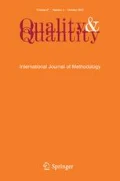References
Angus, L. (1984). Ideology, social structure and collaborative critical research. Paper presented at the annual conference of the American Educational Research Association, New Orleans, April.
Bargar, R.R. and Dugan, J.K. (1982). “Cultivating the creating endeavor in doctoral research”, Journal of Higher Education 53: 1–31.
Becker, H.S., Geer, B., Hughes, E.C. and Strauss, A. (1961). Boys in White: Student Culture in Medical School. Chicago: University of Chicago Press.
Bittner, E. (1974). “The concept of organization”, pp. 69–81 in Roy, Turner, ed., Ethnomethodology. Markham, Ontario: Penguin.
Boyd, W.L. (1983). Political Science and Educational Administration: Rethinking Educational Policy and Management in the 1980s. Deakin, Australia: Deakin University Press.
Brown, R.H. (1978). “Bureaucracy as praxis: Toward a political phenomenology of formal organizations”, Administrative Science Quarterly 23: 365–382.
Burlingame, M. (1981). Social settings in educational organizations: An exploratory study of deliberate segregation and change in schools.” Unpublished manuscript. University of Illinois, Urbana, August.
Durrell, L. (1958). Balthazar, a novel, New York: E.P. Dutton.
Easton, D., ed. (1966). Varieties of Political Theory. Englewood Cliffs, NJ: Prentice-Hall.
Geer, B. (1969). “First days in the field,” in G., McCall and J.L., Simmons, eds., Issues in Participant Observation. Reading, MA: Addison-Wesley.
Glaser, B. and Strauss, A. (1967). The Discovery of Grounded Theory: Strategies for Qualitative Research. Chicago: Aldine.
Greenfield, T.B. (1975). “Theory about organization: A new perspective and its implication for schools”, in M.C., Hughes, ed., Administering Education: International Challenge. London: Athlone Press.
Greenfield, T.B. (1979). “Organization theory as ideology.” Curriculum Inquiry, 15: 43–65.
Gronn, P. (1983). “Talk as the work: The accomplishment of school administration,” Administrative Science Quarterly 28: 1–21.
Guba, E. (1983). “Remarks as discussant on ‘What is the best conceptualization of design validity?’.” Symposium at the Annual Meeting of the American Educational Research Association, Montreal.
Hack, W.G., Gephart, W.J., Heck, J. and Ramseyer, J.A. (1971). Educational Administration: Selected Readings (2nd edn). Boston: Allyn & Bacon.
Huberman, A.M. and Miles, M. (1983). Drawing valid meaning from qualitative data: Some techniques of data reduction and display, Quality and Quantity 17: 281–339.
Izu, J. (1980). “Myths and realities of policy implementation: The case of California's School Improvement Program.” Unpublished working paper, Stanford University.
Jackson, P. (1969), Life in Classrooms. New York: Holt, Rinehart & Winston.
Jick, T. (1979). “Mixing qualitative and quantitative methods: triangulation in action”, Administration Science Quarterly 24: 602–611.
Kuhn, T. (1962). The Structure of Scientific Revolutions. Chicago: University of Chicago Press.
Liebow, E. (1967). Talley's Corner: A Study of Negro Men. Boston: Little, Brown.
Lightfoot, S.L. (1983). The Good High School. New York: Basic Books.
McKelvey, B. and Aldrich, H. (1983). “Populations, natural selection, and applied organizational science”, Administration Science Quarterly 28: 101–128.
Meyer, J.W. (1977). “The effects of education as an institution”, American Journal of Sociology 83: 55–77.
Meyer, J.W. and Rowan, B. (1977). “Institutionalized organizations: formal structure as myth and ceremony”, American Journal of Sociology 83: 340–363.
Miles, M.B. (1979). “Qualitative data as an attractive nuisance: the problem of analysis”, Administrative Science Quarterly 24: 590–600.
Miles, M. and Huberman, A.M. (1984). Qualitative Data Analysis, Beverly Hills, CA: Sage Publications.
Minogue, M. (1983). “Theory and practice in public policy and administration”, Policy and Politics 2: 63–85.
Noblit, G.W. (1984). “The prospects of an applied ethnography of education: a sociology of knowledge interpretation”, Educational Evaluation and Policy Analysis 6: 95–101.
Ogbu, J. (1974). The Next Generation, An Ethnography of Education in an Urban Neighborhood. New York: Academic Press.
Papagiannis, G.J., Klees, S. and Bickel, R. (1982). “Toward a political economy of educational innovation”, pp. 74–117 in W.L., Boyd ed., Political Science and Educational Administration. Deakin, Australia: Deakin University Press.
Paulston, R.G. (1978). Changing Educational Systems: a Review of Theory and Experience. Washington, DC: Development Economics Department, World Bank.
Pfeffer, J. (1981). “Management as symbolic action”, pp. 1–52 in L.L. Cummings and B.M. Staw eds., Research in Organizational Behavior, Vol. 3, JAI Press.
Rist, R.C. (1978). The Invisible Children. Cambridge: Harvard University Press.
Rock, P. (1979), The Making of Symbolic Interactionism. London: Macmillan.
Rubin, L.B. (1976). Worlds of Pain: Life in the Working-class Family. New York: Basic Books.
Schatzman, L. and Strauss, A. (1973), Field Research: Strategies for a Natural Sociology. Englewood Cliffs, NJ: Prentice-Hall.
Schwartz, M.S. and Schwartz, C.G. (1955). “Problems in participant observation”, American Journal of Sociology 60: 343–354.
Sennett, R. and Cobb, J. (1972). The Hidden Injuries of Class, New York: Random House.
Sieber, S.D. (1978). “The integration of field methods and survey research”, American Journal of Sociology 78: 1335–1359.
Van Maanen, J., ed., (1979), “The seminar”, Administrative Science Quarterly 24 (4): 519.
Wax, R. (1971). Doing Fieldwork: Warnings and Advice. Chicago: University of Chicago Press.
Weick, K.E. (1976). “Educational organizations as loosely coupled systems”, Administrative Science Quarterly 21: 1–19.
West, C. (1982). “Why cant's a woman be more like a man?: an interactional note on organizational game-playing for managerial women”, Work and Occuptations 9: 5–29.
Whyte, W.F. (1955). Street Corner Society. Chicago: University of Chicago Press.
Wolcott, H.F. (1975). “Criteria for an ethnographic approach to research in schools”, Human Organization 34: 111–127.
Yin, R. (1982). “Studying phenomena and context across sites”, American Behavioral Scientist 26: 84–100.
Yin, R.K. and Givaltney, M.K. (1981). Organization Collaborating to Improve Educational Practice. Cambridge, MA: Abt Associates.
Author information
Authors and Affiliations
Additional information
A paper prepared originally for a panel presentation for the Special Interest Group on Organizational Theory at the Annual Conference of the American Educational Research Association, New Orleans, April 1984.
Rights and permissions
About this article
Cite this article
Marshall, C. Appropriate criteria of trustworthiness and goodness for qualitative research on education organizations. Qual Quant 19, 353–373 (1985). https://doi.org/10.1007/BF00146613
Issue Date:
DOI: https://doi.org/10.1007/BF00146613

